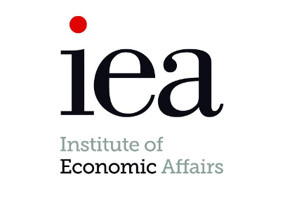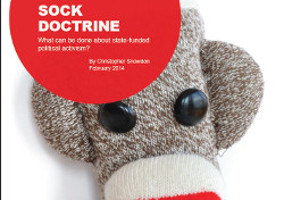Andrew Purkis outlines why he thinks the Charity Commission needs to take action over the Institute of Economic Affairs' activity.
In a recent (19 October) response to concerns I raised on 9 March about the Institute of Economic Affairs, the Charity Commission seems to undermine its own strategic priority to encourage transparency and accountability, and weakens its previous guidance on what it means to advance education rather than promote a particular point of view or prescription.
A wider issue is at stake: whether charitable status and privileges should be used by certain “educational” think tanks to advance specific points of view and persuade people to form specific conclusions (whether political or economic), which (as the Commission has previously made clear) do not constitute “education” for charitable purposes, whilst at the same time undermining the sector’s recommended standards of transparency and accountability.
In its treatment of the issue of transparency and accountability, a key pillar of its current strategic plan, the Commission’s letter to me does say that the Commission “commends” to all charities that they should publicly acknowledge the source of funding.
The Commission says that it has made its views clear to the IEA Trustees, but that is all. It points out that there is no general law compelling disclosure of the source of donations, and the Commission would only direct trustees to do so in exceptional cases which they judge should not include the IEA.
It quotes without comment the justifications offered by the IEA’s trustees for not publicising the sources of their donated income. These include that “it is essentially a private matter” (as if the public interest were not involved in charities’ tax privileges) and that most of their donors, if asked permission to name them, would refuse.
Yet if trustees can simply say “it is essentially a private matter” or “donors would be put off”, what is left of the Commission’s strategic priority to promote transparency and accountability?
Contrast to its earlier statements
This is indeed a marked contrast from what the Commission had to say on this exact subject not long ago in its guidance relating to the EU Referendum:
“If your charity does get involved in any political activity connected with the referendum, you should ensure that, during such involvement, you publicly acknowledge the source of your funding so that the reasons for your involvement can be fully assessed. If you do not do so, this could seriously undermine and detract from the quality of your contribution and may attract regulatory scrutiny by the Commission….full transparency about funding is especially important.” (My italics).
Now, amidst recurrent allegations that the IEA may have been accepting money from people connected with the tobacco or food industries or being used to promote the views of particular rich donors - why no similar robust emphases or warnings?
Political activity?
The second point I raised in March was whether the IEA’s political activity (as defined in the Commission’s guidance CC9), such as its part in developing the case for the anti-advocacy clause that would prevent charities from using public money to influence government, Parliament or any regulator, strayed beyond the proper limits of the advancement of education, which is the IEA’s charitable objective.
In its previous guidance on the advancement of education for the public benefit, the Commission states clearly that “Promoting a specific point of view may be a way of furthering another charitable aim, but it would not be education.”
“If the purpose of providing information or education is to persuade people to form specific conclusions, then this is not education.”
So is it “education” to seek to persuade ministers and special advisers to adopt anti-advocacy clauses in all government contracts with charities? Is the IEA saying that its research and political activity here was not designed to lead to a particular conclusion?
The same supplementary guidance clarifies that the charitable advancement of education involves “researching and presenting information in a neutral and balanced way that encourages awareness of different points of view where appropriate”. I defy anyone to read the IEA’s sock puppet reports and find them to be within that guidance.
In the recent letter to me, by contrast, the Commission advances a more ambiguous definition of what constitutes “education”, quotes a series of general assurances from the trustees, and concludes that no regulatory action is appropriate. Here again, the effect is to weaken its own previous guidance. Why?
Paula Sussex’s letter of 19 October 2016 to me, and my response raising these further concerns, are attached.
Related articles











